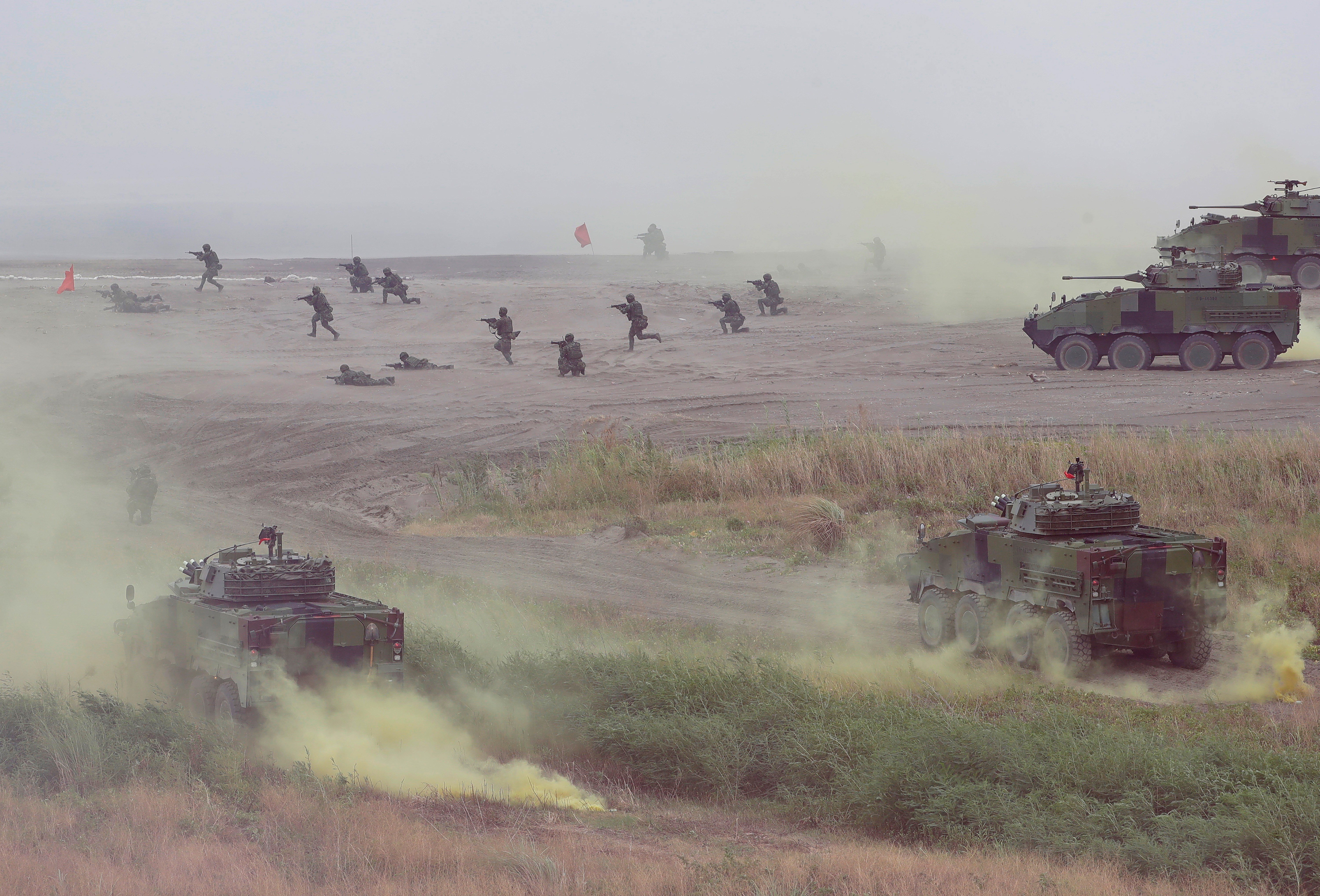Taiwan's FM warns of 'disastrous results' in conflict with China
The Democratic Progressive Party (DPP), to which Taiwan's Foreign Minister Joseph Wu belongs, is perceived as more pro-United States compared to the opposition Kuomintang Party.
-

Soldiers participate in the annual Han Kuang military exercises that simulate an anti-landing operations near the coast in New Taipei City, Thursday, July 27, 2023 (AP Photo/Chiang Ying-Ying)
Taiwan's Foreign Minister Joseph Wu warned that a "Chinese invasion" of the island would have catastrophic consequences for the world citing Taiwan's strategic importance in the semiconductor industry and global shipping lanes.
This comes as Taiwan approaches its presidential election next year.
Wu highlighted that any use of force against Taiwan would create far-reaching repercussions globally. He drew attention to the food and fuel shortages, as well as spiraling inflation, caused by the war in Ukraine as an example of the potential consequences.
"What we need to do is to explain to the international community that if there's any conflict involving Taiwan, it's going to have disastrous results for the rest of the world," Wu said.
Taiwan's location plays a crucial role in international security and prosperity, as more than 50 percent of the world's shipping containers pass through the waterway that separates Taiwan from mainland China.
Additionally, Taiwan holds a near-monopoly on semiconductor production, making microchips essential for the modern economy and defense infrastructure worldwide. Any disruption to the supply chain would have significant implications.
Wu expressed hope that China would refrain from using force against Taiwan, as the impact would be too severe for the entire world.
"We hope that the Chinese government will not resort to the use of force against Taiwan, because the impact is going to be too serious for the world," he said.
He also claimed that Taiwan is facing a sophisticated disinformation campaign from China to influence the island's population and sway the outcome of the upcoming presidential election.
It is worth noting that the Democratic Progressive Party (DPP), to which Wu belongs, is seen as more pro-United States compared to the opposition Kuomintang Party. The current DPP administration, led by President Tsai Ing-wen, is in its final term and has been at odds with the Chinese leadership.
The big picture
The situation around Taiwan has been escalating following former US House Speaker Nancy Pelosi's visit to Taipei. China considers Taiwan part of its territory and opposes any direct official foreign contact with the island.
Pelosi's visit led China to announce ending cooperation with the United States on a number of issues such as climate change, anti-drug efforts, and military talks.
Recent updates on the situation reveal that Taiwan's Vice President, William Lai, is scheduled to visit the United States this month as part of his transit to and from Paraguay.
While these are official stopovers, the visit provides an opportunity for Lai to meet with US officials despite Chinese warnings.
On July 6, Chinese President Xi Jinping called on soldiers to protect China's sovereignty and territory, telling them to strengthen war and combat planning to boost their chances of winning in actual warfare, according to state-run Xinhua news agency.
Read more: Kissinger talks Sino-US military ties with Chinese Defense Minister

 3 Min Read
3 Min Read










